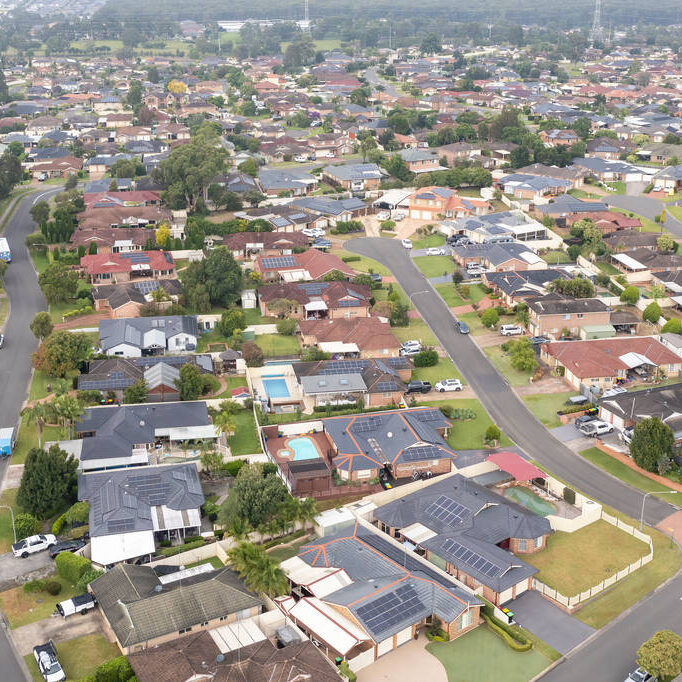You may be chasing more affordable prices, dreaming of a lifestyle change, or spotting investment potential in a different market altogether. No matter the reason, buying property in another state can be pretty tempting. But let’s be clear: buying interstate isn’t quite the same as finding a place down the road. You may have to […]
Unlock the Secrets of Refinancing: Everything You Need to Know!
Thinking about refinancing your mortgage? Ensuring you have the right structure and strategy could see you save money on interest rates or unlock equity in your home. But let’s be real—the process can be confusing, especially if you’re a first-timer. We’ll guide you through everything you need to know about refinancing and if you’re still not sure, you can pick up the phone and contact us today.
First, what is refinancing?
Essentially, refinancing is replacing your existing home loan with a new one. The goal is generally to obtain better terms, such as a lower interest rate, a different loan term, or different features. By refinancing, you can access a product that better suits your needs, potentially saving you money and allowing access equity in your home.
When you refinance, the lender will pay off your existing mortgage and issue you a new loan. The new loan will have different terms, such as a new interest rate, loan term or payment structure.
Rate and term refinancing is the most common type of refinancing. It involves obtaining a new mortgage with different terms to save money on interest rates, lower monthly payments, or change the loan term.
Another option is to get cash-out refinancing. With this type of refinancing, you take out a new loan larger than your existing mortgage, allowing you to access the equity in your home and receive cash back at closing. You can use this cash to pay for home improvements, repay other debts, or settle other expenses.
Why refinance, and when’s the best time to do it?
Let’s face it: nobody likes paying more than they have to on their mortgage. Refinancing may help lower your monthly repayments and the amount of interest you pay over the life of your loan.
For example, if you took out a mortgage several years ago, when interest rates were higher, it may be possible to refinance at a lower interest rate today. This could result in significant savings over the life of your loan. Refinancing can also give you access to the equity in your home, which is the difference between the current value of your property and the amount you owe on your mortgage. You can use this equity to fund home renovations, pay off high-interest debt or even invest in other properties.
Unsure if today’s the best time to refinance your home loan? Here are some factors to consider when deciding if it’s the right time to refinance:
- Interest Rates: It is one crucial factor to consider when refinancing. If interest rates have dropped since you took out your original mortgage, it may be a good time to refinance. But, keep in mind that refinancing involves closing costs, so it’s essential to calculate how long it will take to recoup those costs with the savings from a lower interest rate.
- Credit Score: Your credit score plays a significant role in the interest rate you receive on a refinanced mortgage. If your credit score has improved since you acquired your original mortgage, you may get a lower interest rate this time. Conversely, if your credit score has declined, you may have difficulty qualifying for a refinance or may end up with a higher interest rate than your current mortgage.
- Equity: The amount of equity you have in your home can impact your ability to refinance. Generally, lenders prefer borrowers to have at least 20% equity in their home to qualify for a refinance.
- Loan Term: Refinancing can be an opportunity to change the term of your loan. For example, if you have a 30-year mortgage and have been making payments for several years, you may like to refinance into a 15-year mortgage to pay off your loan sooner.
So how to refinance a home loan?
Once you’ve decided to refinance your mortgage, here are the steps you’ll need to follow:
Step 1: Evaluate Your Current Mortgage
Before you start refinancing, you need to understand your current mortgage’s terms and conditions. These include the interest rate, monthly payments and fees or penalties.
If you currently have a fixed interest rate, it’s important to note that you will likely face a break fee for refinancing within the fixed period. It’s important to weigh up whether the potential savings justify breaking a fixed term early.
Evaluate your current mortgage statement and review the terms and conditions. If you’re unsure about anything, contact your lender and ask for clarification.
Step 2: Check Your Credit Score
As mentioned, your credit score will impact your new mortgage’s interest rates and terms. So check your credit score before refinancing and take steps to improve it if necessary. A good credit score can help you get a lower interest rate, which could save you thousands over the life of your new loan.
Step 3: Shop Around for Lenders
What’s one of the biggest mistakes homeowners make when refinancing? Here it is: not shopping around for the best deal. Never assume that your current lender is the best option. Instead, research different lenders and compare their interest rates, fees and loan terms. A good mortgage broker takes care of this for you.
Step 4: Apply for a Loan
Once you’ve chosen a lender, you must complete an application and provide documentation, such as income statements, tax returns and bank statements. Prepare all the required documentation to speed up the application process.
Step 5: Get an Appraisal
Your lender will require an appraisal of your property to determine its current value. It will also specify how much equity you have and what your new loan amount will be.
The appraisal process typically involves a licensed appraiser visiting your property to assess its condition, location and other factors that could impact its value.
Step 6: Close the Loan
If your application is approved, you’ll sign a new loan agreement and pay any closing costs or fees. Your old mortgage will be paid off, and you’ll start making payments on your new loan.
Remember that closing costs can include fees for property appraisal, title search and legal processes. Be sure to factor these costs into your decision to refinance.
The bottom line of refinancing.
Remember, refinancing is not for everyone. So it’s essential to do your research and evaluate your financial situation before making a decision. If you’re unsure whether refinancing is right for you, speak with a financial expert or mortgage professional.
We hope this guide has provided valuable insights into the refinancing process in Australia. If you have any questions or need further assistance, please don’t hesitate to contact us. Our team of experienced mortgage brokers is always here to help.
Enquire Now
Find Your Perfect Finance Solution
Let's discuss your finance needs. We’re here to help.
More posts from Deltos Finance

Suburbs with the Highest Rental Yield in Tasmania
The term “rental yield” is music to any property investor’s ears. It’s the key metric that indicates the annual return on your investment, essentially the percentage of the property’s value that comes back to you in rental income. In a market like Tasmania, which has been gaining traction for its overall investment appeal, pinpointing the […]

Launceston: A ‘Second Wind’ Property Market You Should Invest in Now
When talk turns to Tasmania’s property scene, it’s easy for the spotlight to shine brightly on Hobart, with its bustling waterfront and historic charm. But just a little further north, nestled at the head of the picturesque Tamar Valley, lies Launceston—a city that quietly hits its stride and presents a compelling proposition for savvy property […]

How Often Does Property Double in Value?
Every homeowner has likely dreamed of their property doubling in value in the future, turning into a valuable nest egg or funding their next big adventure. But how long does it actually take for a property to double in value? And how often does it happen? While there’s no magic eight-ball to predict the property […]

Stamp Duty Exemption for First-Home Buyers in Tasmania: Has It Paid Off?
Purchasing a property has historically come with major financial difficulties, especially for first-home buyers in Tasmania or any other state for that matter. The stamp duty is one of those most notable monetary challenges for homebuyers. Essentially, it’s a tax levied on property purchases that often adds tens of thousands of dollars to upfront costs. […]

Difference Between Airbnb and Traditional Renting in Hobart
Hobart’s property market has become a hotspot for investors largely because of its strong tourism demand and stable rental market. But that doesn’t mean all property investments in this Tasmania capital are a sure win. One factor to consider is deciding between short-term rentals like Airbnb and traditional long-term renting. Each option has distinct advantages […]

Is Launceston a Good Place to Live?
The short answer is yes, especially if you want a more affordable lifestyle without giving up access to key services, natural beauty, and long-term opportunities. Also, with its blend of heritage charm, steady economic growth, and a property market still within reach for many Australians, Launceston, Tasmania, is gaining momentum as a popular area for […]

Hobart Property Management Fees: A Complete Guide
You’ve already secured an investment loan and finalised your rental property purchase in Hobart. Now, it’s time to take action by listing the property for rent and managing it effectively to start generating rental income. But how much should you expect to spend on property management in Hobart, Tasmania? As Tasmania’s capital continues to attract […]

How Rising Property Prices Affect Your Home Loan and Buying Potential
Here’s the good news: the Australian real estate market has been experiencing significant growth in recent years, with house prices in major cities reaching record highs. It can be a huge win for homeowners and investors, especially those planning to sell their properties soon. However, this can be an issue for potential property buyers, including […]

Build Your Wealth with a Simple Guide to Using Your Home Equity
Building wealth requires adopting the right mindset and being strategic when using available financial instruments. Essentially, it’s about making your money work in your favour. But what if you don’t have enough cash to start creating wealth? There’s an underutilised strategy that we want to share with you, and that is leveraging your home’s equity—the […]


